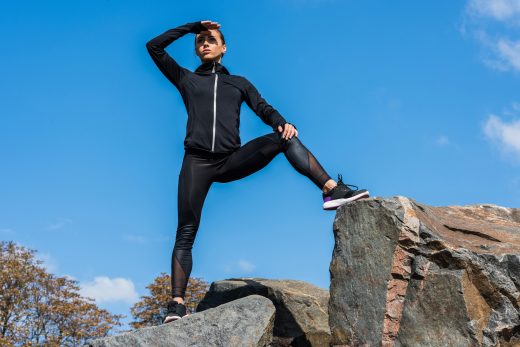
From heart disease to balance issues, people encounter various health concerns as they age. It can be tough to prevent specific problems — but your actions play a direct role in your wellness, so you take the proper steps to ensure a healthy future. That’s especially true for bone health.
Did you know the risk of osteoporosis in women has increased over the past several years in America? To keep your bones strong, you should take specific measures when you’re young. This way, you’ll get an early start.
1. Exercise More Often
It’s simple: the stronger your muscles, the stronger your bones. Because women are more at risk for osteoporosis than men, you’ll want to create an exercise routine that works for you. Most importantly, you should prioritize weight-bearing activities.
Try workouts like jogging, tennis and dancing to keep your body in tip-top shape. It’s best to move your body at least once every day, even just for 30 minutes. These activities will help your bones maintain and boost their density.
If you feel unmotivated, you could explore group workouts to make the experience more fun. Ask your friends to take a walk with you every day after work. There are several ways to make physical activity a collective effort where everyone works toward better health together.
2. Avoid Specific Habits
Some habits, like smoking cigarettes and drinking alcohol, negatively influence your bone health. Be sure to avoid harmful substances in excess. It’s all right to have one or two alcoholic beverages each day, but you want to limit yourself to maintain your well-being.
Further, harmful substances can affect other parts of your physical and mental health. These influences can inhibit the other actions you take to protect your bone density, which is why your safest bet will be to avoid smoking and drinking altogether. It’s just better to avoid them.
If you feel like you have a substance abuse issue, you should seek help to protect yourself.
3. Add Nutrients to Your Diet
Everyone likes to indulge in snacks and desserts. However, you’ll want to eat a balanced diet as you get older. If you don’t consume the right vitamins and nutrients, your bones won’t have the sustenance they need to stay healthy.
Do your best to support your body with fruits, vegetables and proteins. Foods like dairy products are perfect for calcium, but you can also eat leafy greens for the same effect. Further, options such as salmon, potatoes and berries contain various minerals.
Avoid supplements unless your doctor approves them, as you can accidentally overindulge.
4. Check Your Medications
Sometimes, your medication can put you at risk for osteoporosis. If you take certain prescription drugs for a health concern such as prostate cancer or rheumatoid arthritis, your bones may weaken over time. That’s true for specific antidepressants, too.
If you’re concerned about your bone health, you should bring up the topic with your doctor. It’s always wise to check in to see whether a better option is available. Some medications might help boost your bone density, so you could discuss them with your physician, as well.
5. Spend Time Outside
Without vitamin D, our bodies can’t process calcium. Because calcium plays a role in your bone density levels, you’ll want to prioritize both vitamin D and calcium. If you spend more time outside, you can help your body process all the calcium you consume.
To tackle two issues at once, you can exercise outdoors. This way, you’ll strengthen your bones while you get enough sunshine. That said, you don’t need to spend too much time in the sun to receive vitamin D, so just a walk to get your mail will do the trick.
Remember to wear sunscreen every time you head outdoors to protect your skin. People can get sun damage even on cloudy days. Take an extra few seconds to apply a high SPF, and you can further protect your health.
6. Have a Bone Density Scan
This suggestion won’t be necessary until you’re in your 60s. However, like with all check-up milestones, you should know about bone density scans before you get one. These evaluations are the best way to measure your bone strength as you grow older.
Essentially, bone density scans are X-rays that measure the calcium levels in your hips and spine. If you’re more at risk for osteoporosis due to risk factors like your family history, you may need to get a screening before your 60s. Communicate with your physician to see what’s best.
Prioritize Your Bone Health With These Suggestions
Many people forget that bone health matters. It’s not always an obvious issue, so you might not know you have bone issues like osteoporosis until later in life. That’s precisely why prevention matters. If you take specific steps now, you can enjoy a healthier life as you age.



